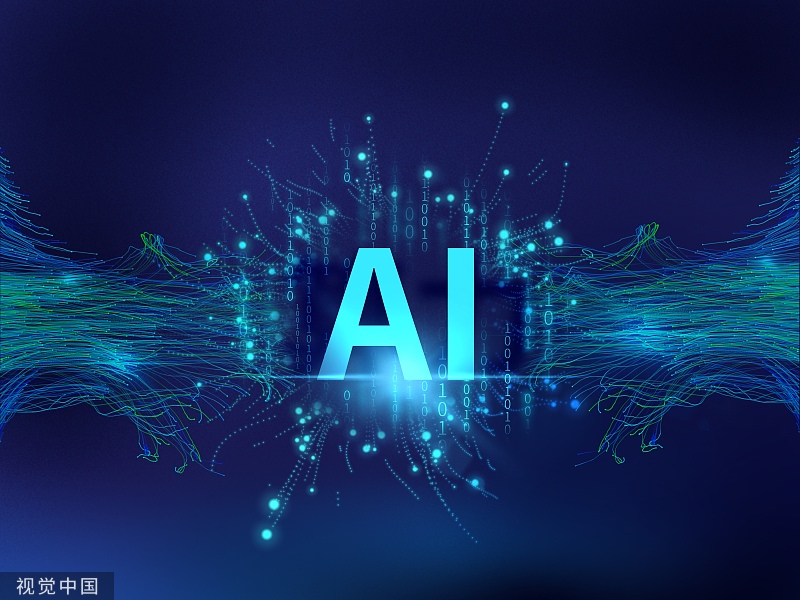AI's on a roll, but miles to go before tech could replace humans
By Cheng Yu | China Daily | Updated: 2023-08-28 09:01

With the explosion of chatbots like ChatGPT driving the current tech boom, many minds have been gripped by a fear: will AI replace human beings?
Discourse in the global media would have us believe that such fears may be unfounded. Yet, the runaway success of a Chinese AI-powered digital portrait generator has reignited such fears, especially among social media users.
Users of the mobile app need to pay 9.9 yuan ($1.4) and upload at least 20 recent portraits each to get a digital clone, which can then be used to create different types of portraits fit for ID purposes, formal occasions like business meetings or even lifestyle casuals. Care for a portrait of self draped in various traditional Chinese costumes?
According to a poll on lifestyle platform Xiaohongshu, 72 percent of the respondents preferred the profile photo created by the portrait generator to those created by a prominent professional portrait photography chain in China.
My experience with the product showed the quality of its AI-generated images is very impressive, perhaps better than that of photographs taken at offline photo studios. Facial expressions, bearing, lighting, overall appearance ... the whole gamut of technical aspects seemed superior.
Notably, users can train the app to generate their portraits that are lifelike. AI industry experts said generative AI can do the trick.
Most importantly, I didn't need to spend time and more money in dressing up and striking unnatural poses in front of a group of unfamiliar people. I could get various photos at the price of, say, a Bee Select coffee, without having to step out of my home.
So, in the next step, will photographers, videographers, image specialists and their ilk lose their jobs? Unlikely, if the emerging AI tech is managed and regulated well, with a firm grip on the direction of its evolution.
Tech without the human touch — consciousness, if you will — has its own pitfalls. To reiterate, the quality of my AI-generated portraits was good. But, I soon discovered that many of my friends also tried out the app, and their portraits had the same or similar poses, costumes and angles — a kind of one-size-fits-all scenario.
Which is to say that homogenization makes offline photo studios a necessity still. They offer more personalized services and can better showcase an individual's unique personality.
"It's too early to say that AI portrait apps will replace offline photo studios. Firms that own such apps don't yet have a clear business model. It'd be hard for them to get repeat payments from users after the first try," said Wang Peng, a senior researcher at the Beijing Academy of Social Sciences.
One concern continued to linger in my mind. I had uploaded 20 images of mine on to the app. Will they be safe?
"As AIGC rises, data security problems can arise. Illegal data acquisition, data leakage and malicious abuse of data are concerns now that need to be tackled," said Zhang Tianyi, senior product manager of RealAI, a Tsinghua University-backed Beijing-based AI security company.
"There could be content compliance issues as well, like deceptive content, deep fakes and diffusion models, which can mislead users and create nuisance," Zhang said.
But not everyone is overly concerned. Some, in fact, feel AIGC may be just a passing tech fad. A real-world assessment took place between AI doctors and human doctors in June. The livestreamed evaluation involved 120 real patients and 10 attending physicians from West China Hospital, Sichuan University.
To everyone's surprise, human doctors scored an average of 7.5 out of 10, while AI doctors scored 7.2.AI doctors' recommendations, however, were found to be 96 percent as good as those of top-level physicians.
Ma Ting, a professor of neuroinformatics at the Shenzhen, Guangdong province branch of Harbin Institute of Technology, said that AI indeed makes a huge difference in the healthcare industry, but when doctors make decisions based on patients' diagnoses, they consider multidimensional data.
"Multidimensional data are difficult for AI to access and assess. To fully allow AI to move from its current perceptual intelligence to cognitive intelligence, we still need more research, more data and more intelligent algorithms," Ma said.
























